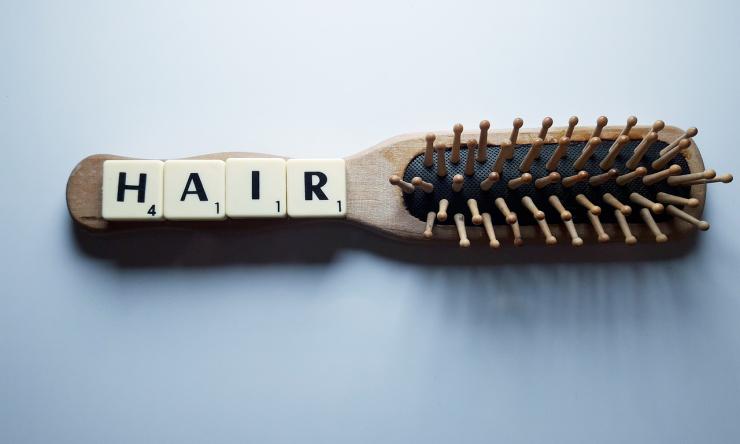Don’t lose hair over your hair loss
Whether it be a few strands falling out in the shower or signs of a receding hairline, hair loss can happen to anyone. An expert at Baylor College of Medicine reveals some of the reasons behind hair loss and why you might not need to pull your hair out stressing about hair loss.
“It is normal to lose between 50 and 100 strands of hair every day,” said Dr. Oyetewa Oyerinde, assistant professor of dermatology and director of the Skin of Color Clinic at Baylor. “Luckily, there are many preventative measures to ensure minimal hair loss.”
Hair loss can be caused by several things, such as nutritional deficiencies, genetic disorders, hormonal imbalances, certain medications, autoimmune disorders, infections, stress or normal aging. Alopecia is the medical term for hair loss, and anyone shedding hair at a higher rate or seeing bald spots popping up is experiencing different forms of alopecia.
Androgenetic alopecia is the most common type of progressive hair loss and is commonly known as male- or female-pattern hair loss. In men, this hair loss most commonly happens on the crown and frontal scalp and can lead to complete baldness in those areas, while women who experience this type of hair loss tend to see thinning all over the scalp, especially around the central part. Women will very rarely see complete baldness if they suffer from androgenetic alopecia.
“If you have a family history of hair loss, it increases the chances that you will experience it as well,” Oyerinde said.
Aside from genetics, outside factors also can contribute to hair loss. Stress-related hair loss, also known as telogen effluvium, often occurs three months after a serious stressful event, like childbirth. It can take between 6-9 months for hair to grow back on its own. A diet that is too low in protein or calories or a significant loss of weight in a short period of time also can lead to hair loss.
Traction alopecia is a type of hair loss that happens when tight hairstyles, like ponytails, braids, cornrows, locs and others, continuously damage hair follicles. Although it is fine to wear these styles from time to time, repeated wearing of these styles can lead to hair loss, Oyerinde said. Additionally, many styling products and chemical treatments also can lead to damaged follicles.
“A good rule of thumb is that if you experience any pain after putting a style in place, then hair loss is possible,” Oyerinde said.
Fortunately, there are ways to reduce hair loss or regrow lost hair. Overall, a balanced diet, appropriate amount of water consumption and adequate sleep will help to prevent hair loss. Oyerinde also advises staying away from damaging hair practices like chemical treatments, excessive heat to the scalp and tight hairstyles, especially if you already notice hair falling out.
If lifestyle changes aren’t enough, men and women may turn to topical minoxidil for hair restoration. This medication can stimulate hair growth and slow hair loss, has been shown to be effective against androgenetic alopecia and is easily accessible. Some data shows that rosemary oil, a commonly used product, helps with hair regrowth. However, Oyerinde said that it will take a much longer time to see results, if any, and that it may not be able to treat all forms of hair loss.
If readily available treatments are not proving effective, dermatologists can treat hair loss with different types of injections, prescription topical medications and oral medications. In severe cases, hair transplant may be an option for some. In a hair transplant, doctors will cut out a strip of thick hair from the back of your scalp or cut out small follicular units to transplant to areas of thinning or hair loss on the front of the scalp.
“Please make sure to see a board-certified dermatologist, and especially those that specialize in hair loss, as soon as you start to experience symptoms of hair loss,” said Oyerinde. “We often like to say, ‘Time is hair’ in the hair loss community, and we have a much higher chance of recovering hair or preventing further hair loss if we catch it early.”










